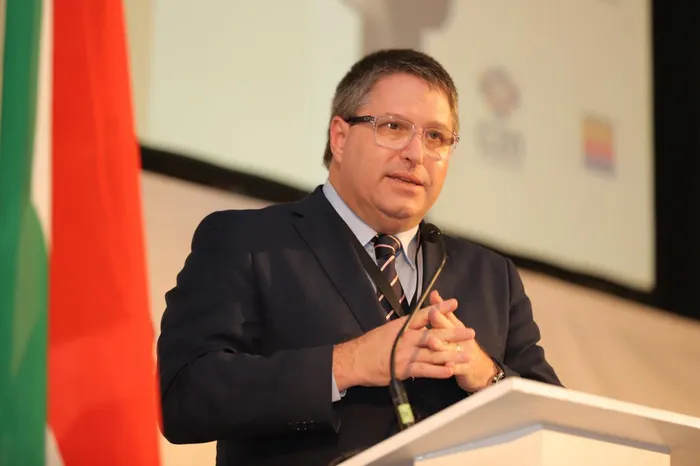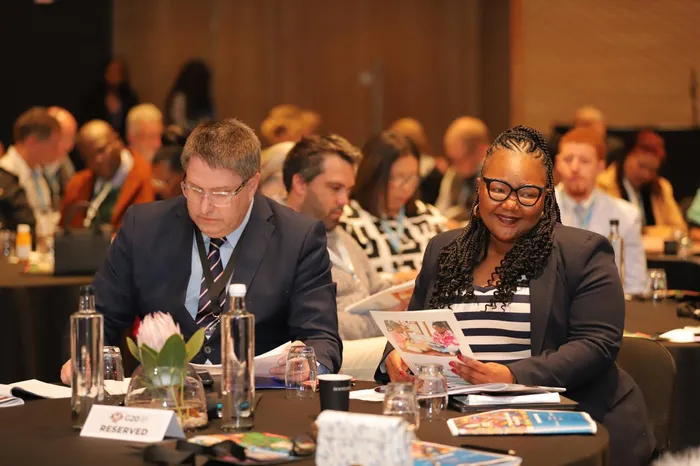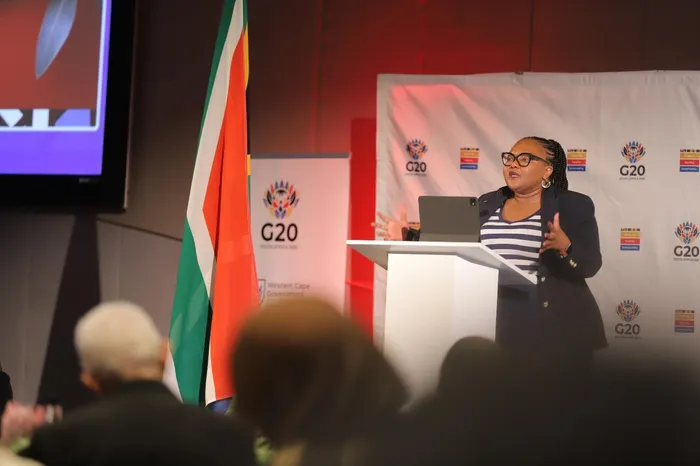
Western Cape Education MEC, David Maynier addressed stakeholders at the Indaba
Image: WCED/Supplied
Early Childhood Development (ECD) took centre stage at the Western Cape G20 Provincial Education Indaba, where Basic Education Minister Siviwe Gwarube and Western Cape Education MEC David Maynier engaged with stakeholders.
The flagship event focused on themes of ‘Quality Foundational Learning – with an emphasis on Early Childhood Development’ and Educational Professional Development for a changing world.
The Indaba follows others that have been held across the provinces, with the Western Cape being the last before a national indaba is expected to take place next week.
Maynier said that the G20 Indaba aims to propose clear, practical, implementable ideas, “so that the national minister can take these forward into her engagements with international counterparts”.
“The G20 engagements provide an important forum for developing solutions to the challenges we face.
“Too often, we get trapped in the mindset that South Africa’s problems are unique and that we are the only ones who can figure out how to solve them. But that is not the case: dozens of other countries in similar economic and social situations have grappled with the same challenges,” Maynier said.
Gwarube added that they had to be purposeful and ensure that the global debates on education are not just abstract but that they connect to the classrooms in Khayelitsha, to the ECD centres in George, the high schools of Cape Town, and the rural schools stretching across the Karoo and the West Coast.

Western Cape Education MEC, David Maynier and Basic Education Minister Siviwe Gwarube engaged with stakeholders at the G20 event.
Image: WCED/Supplied
Gwarube then went on to explain an analogy of two ten-year-old learners, one from an affluent home, where they read to, have access to good ECD centres, and have access to nutritious food. The other ten-year-old is a child raised in a home with no reading culture, and they will likely stay at home prior to going to Grade R/grade 1.
“They are expected to be able to read, and read for meaning quickly, and then they go through Grade 1 to Grade 3. In South Africa, a large majority of our Grade 3s are not cognitively developed enough to be at Grade 3’s academic level.
Gwarube explained that in South Africa, very few children fall into that first category, and that the majority of South African ten-year-olds are the second child.
“That is a systemic problem, and literacy crisis, that says to us what needs to be done.”
She explained that it is necessary to start obsessing about children in Grade R, to make sure that the foundational stages set the children up for success.

Basic Education Minister Siviwe Gwarube.
Image: WCED/Supplied
Maynier said that the WCED faces acute admissions pressure, with thousands of additional learners joining our schools each year, but that as overwhelming as the pressures are, “we must not forget to recognise, and to celebrate, what is working and what is creating hope in our schools”.
“By far the greatest challenge that the basic education sector faces in our country is that we struggle to prioritise, Maynier said.
Cape Argus
Related Topics: